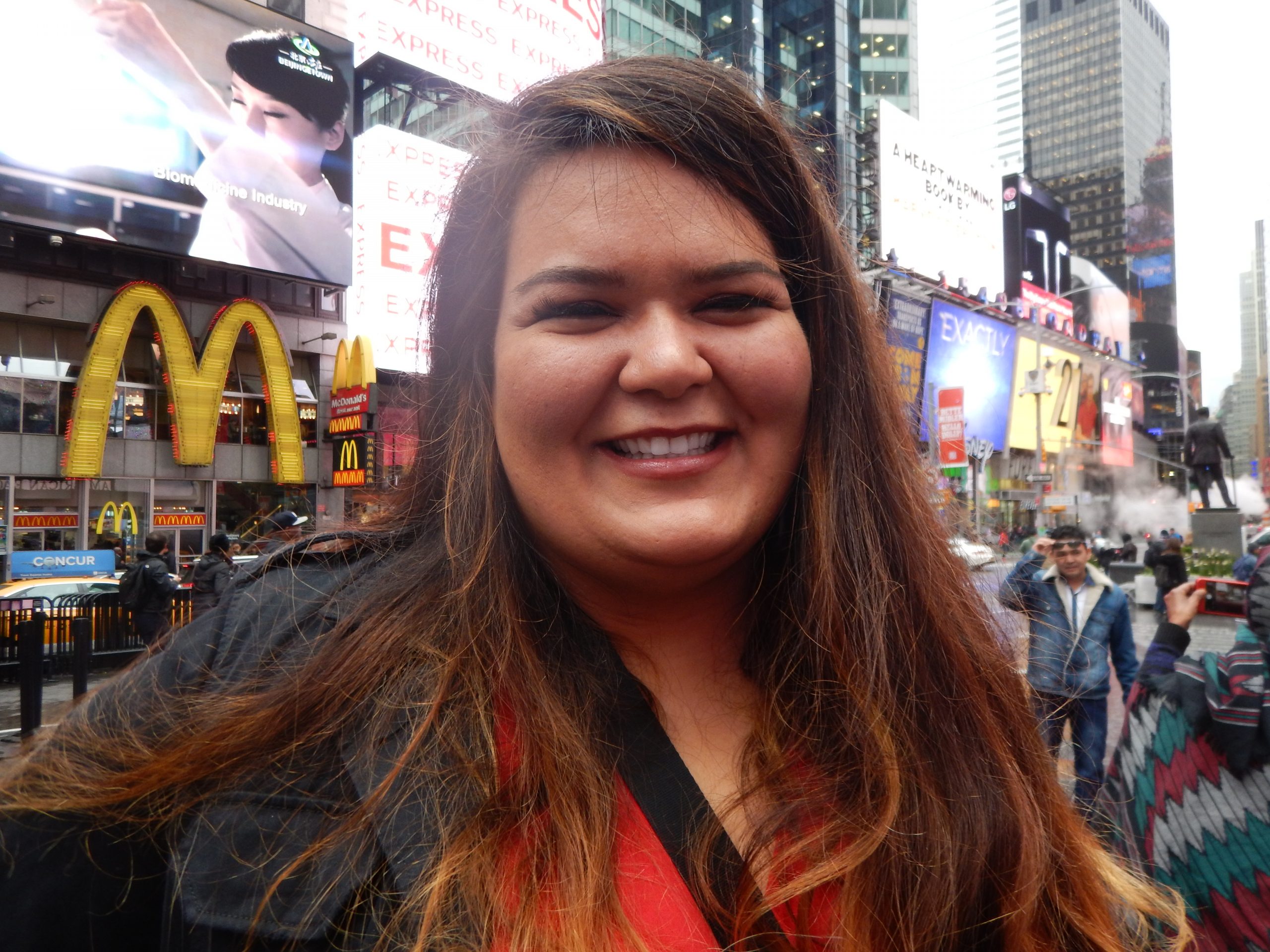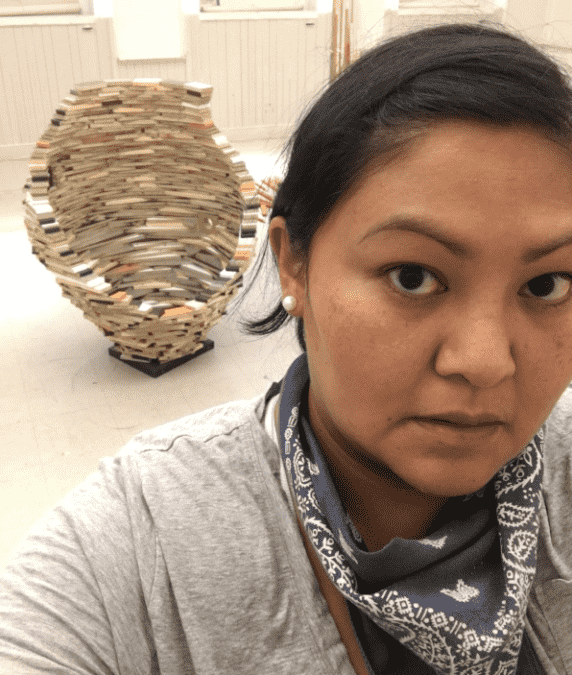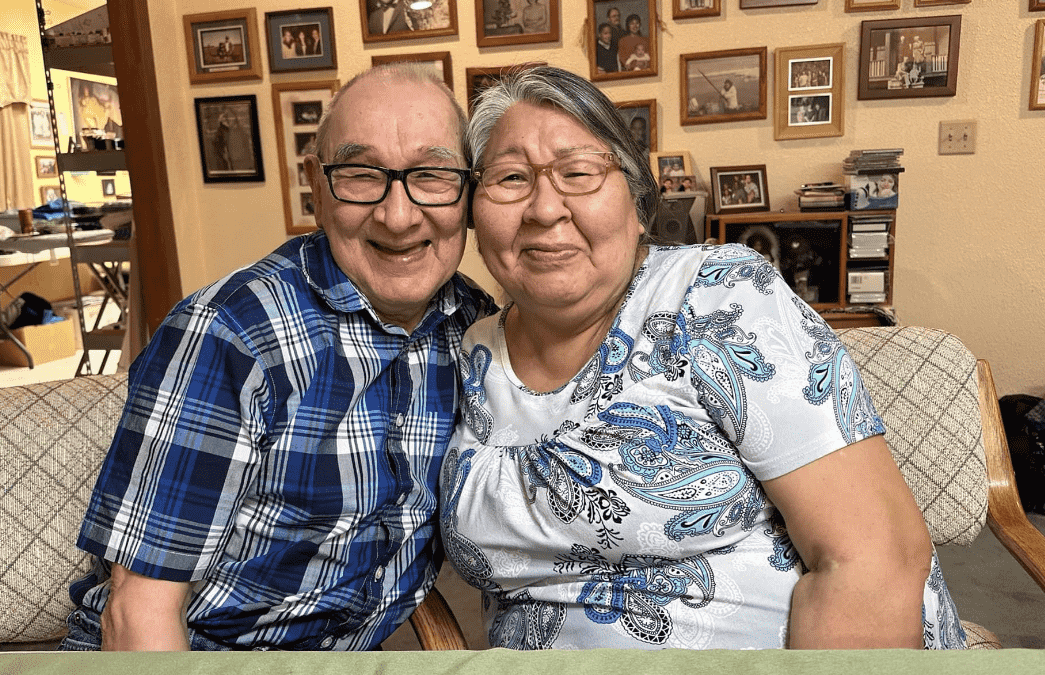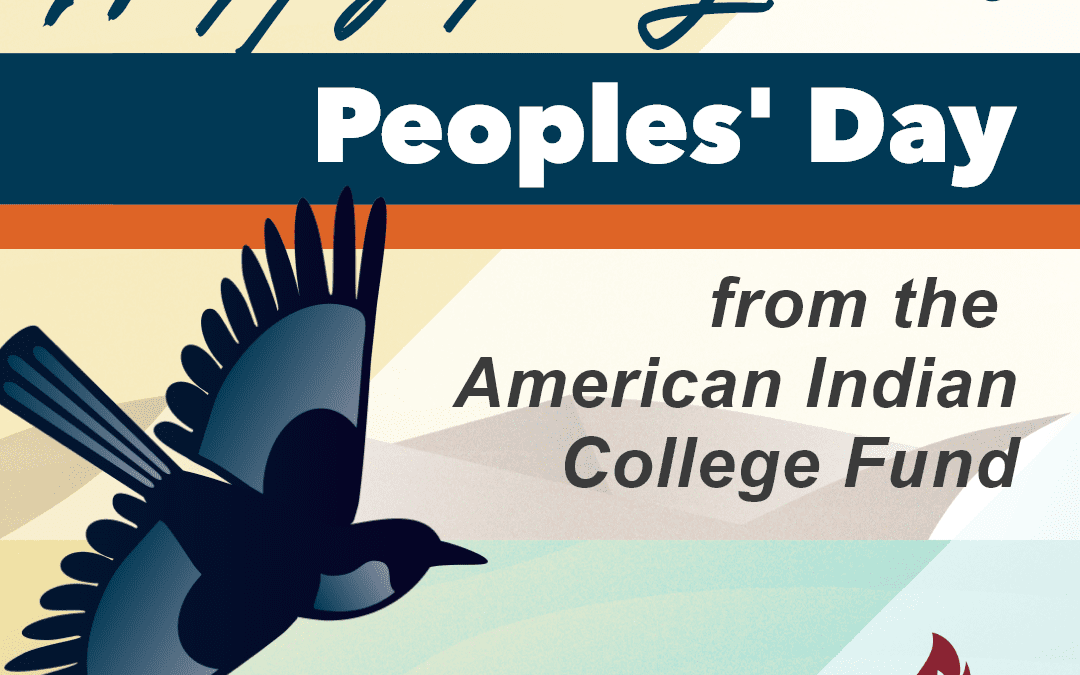#Indigetern is our new campaign to highlight stories and reflections of Native students who have interned in businesses, organizations, agencies, and tribal communities across the country.
 Robin Maxkii shared some snippets from her internship experience at the National Science Foundation in Washington, D.C. In a conversation with her about her internship experience, she shared that her time in Washington was one of her best experiences in learning more about how to think about and act on information given by working professionals and mentors. Although she was appreciative of their advice, she chafed at feedback about her career trajectory and academic pursuit. It was at the end of her internship that she realized her mentor had offered some useful critique and affirmation about her developing skill set, which now are informing her future professional choices and decisions.
Robin Maxkii shared some snippets from her internship experience at the National Science Foundation in Washington, D.C. In a conversation with her about her internship experience, she shared that her time in Washington was one of her best experiences in learning more about how to think about and act on information given by working professionals and mentors. Although she was appreciative of their advice, she chafed at feedback about her career trajectory and academic pursuit. It was at the end of her internship that she realized her mentor had offered some useful critique and affirmation about her developing skill set, which now are informing her future professional choices and decisions.
National Science Foundation Summer Scholar / Quality Education for Minorities (NSF/QEM)
Tribe: Stockbridge-Munsee
School attended during internship: 2014 and then 2016
Year in school you completed your internship: Rising Sophomore and Junior year
Where they did their internship: National Science Foundation / Social Behavioral and Economic division and QEM
Duration of the internship: May – August 2014; 2016
- What did you do at your internship?
Quality Education for Minorities made it possible for me to intern at the amazing National Science Foundation! I did a wide array of things, but my main projects revolved around curating data.
- What did you learn?
The value of the internship goes far beyond the listed duties which in my case involved creating databases for various projects, taking notes in a wide variety of meeting, creating independent development plans and following through, familiarizing myself with vernacular and jargon used in those fields, and attending various professional development and student-orientated opportunities.
I also learned that the world is quite small in ways; you never know who you will meet and where they will take you. I changed my major and education focus and yet, people I met on my first internship were able to connect me to people on my second internship. This created a much more complex network for me in Washington, D.C. and ultimately feel more at ease in that environment.
- What was the most challenging or scariest thing you encountered during your internship?
My own insecurity! Just being in that environment where everyone seemingly has a Ph.D. and so much knowledge and sophistication, I felt really self-conscious as well as anxious that I would make a mistake or wouldn’t be able to keep up. Most of my dorm mates attended Ivies or Big Ten schools and at first I felt a bit insecure coming in from a smaller college, although in the long run dealing with that insecurity made me value my education even more and I realized the differences between institutions are more about access to resources and are not about one being inherently ‘better’ or more legitimate.
- What was the most rewarding thing you encountered during your internship?
Aside from being under the mentorship of amazing people in the field I am studying, I realized other areas of social science I could pursue beyond just those offered at my school.
The amount of resources suddenly available to me was incredible. From having leaders in my field as mentors, being able to sit in on meetings and discussions, and in some small part – being able to contribute is just fantastic. Also being able to live in student housing, smack in the middle of Washington, D.C. surrounded by tons of ambitious, motivated students was really inspiring. I still keep in touch with a bunch of people I met and we have formed our own networks and keep in touch, sharing support and information about graduate schools, internships, work/life balance tips, etc.
- What information or advice would you share with others wanting to participate in an internship?
Internships are amazing opportunities to preview possible employment possibilities. They are great ways to see if the area you ‘think’ you want to major in is really the area you ‘want’ to be in.
There are also endless opportunities within internships—to meet other students, to explore new cites, to gain new mentors. The title of intern is pretty cool also; people are usually quite eager and patient to share and teach you things.
Don’t be afraid to ask questions! Not just from your mentors but from other interns! You are there to learn and people want to support that.
Also if you are not sure where to even begin the internship process, start by listing companies or places you are interested in working at and then googling “X- internship.” If you are not even sure where you want to work, consider looking up people you admire and seeing where they might have interned. Once you narrow down a few places, apply! Don’t allow insecurity to dissuade you from applying.
Where you work now:
Currently on fellowship with a New York media company before graduate school—or that’s the plan. Who knows where my education will take me!
NSF Summer Scholars Program Link
Share your indigenous internship experience by e-mail to Jack Soto, Program Administrator, Internships and Career Readiness.











